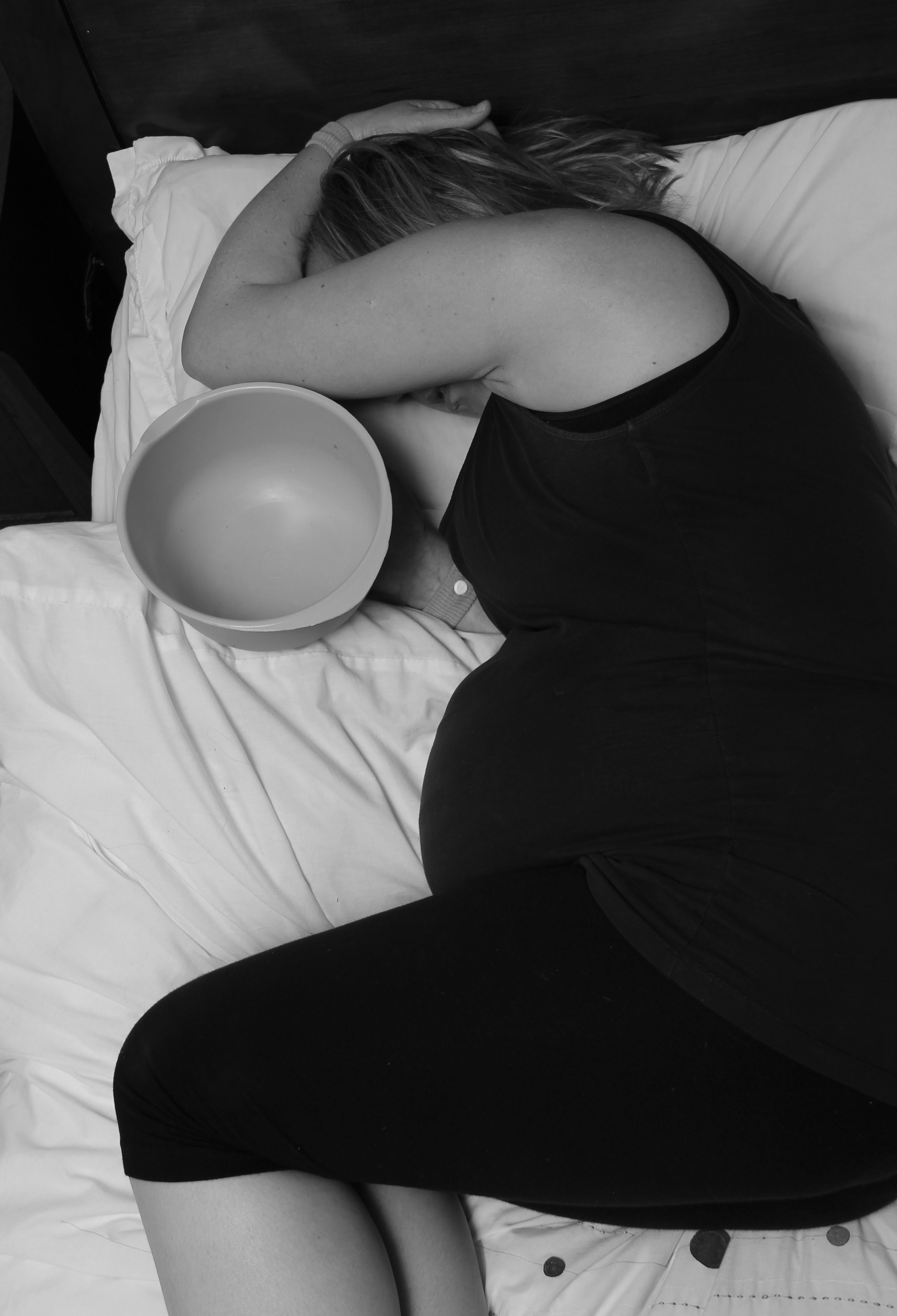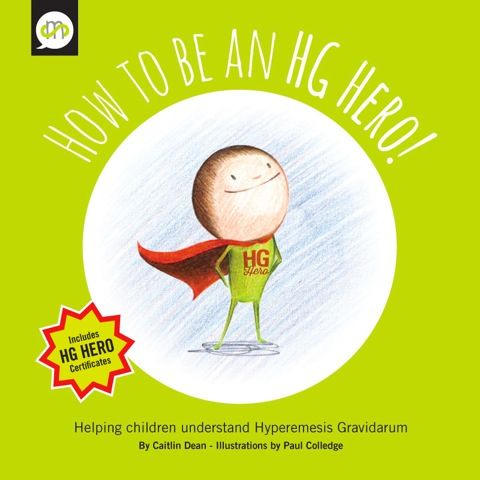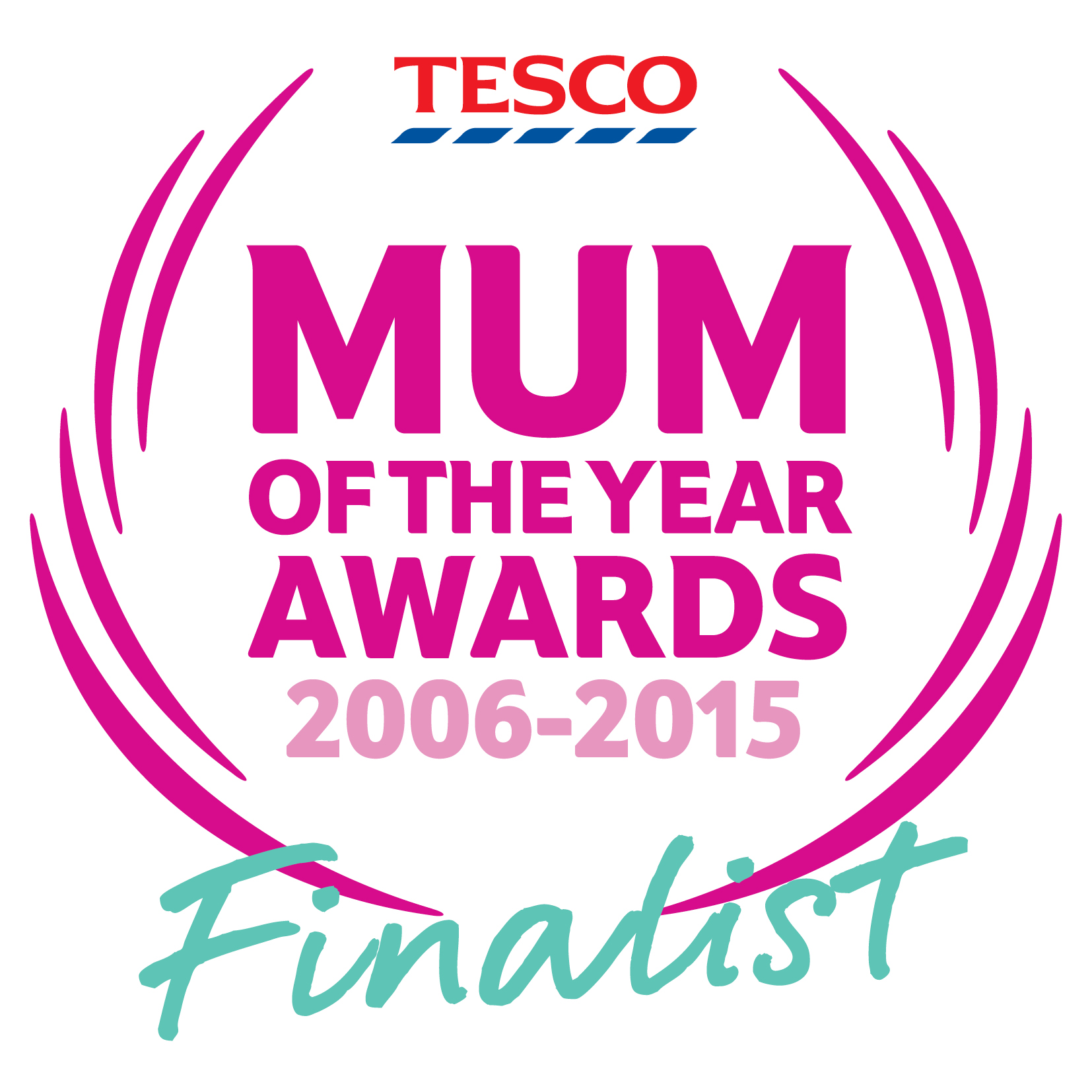The �Risks� of Medication in Pregnancy
This week saw an episode of Call the Midwife in which a women who was suffering Hyperemesis Gravidarum was given a drug called Thalidomide. The programme is set in the 1960's and while the women suffering portrayed the horrors of hyperemesis very well, the miraculous cure of the drug was perhaps a little overstated... I don't think even Thalidomide had that much of a wondrous effect on full blown HG! Anyway, that's by the by... We all know the devastating effects Thalidomide caused when taken between days 35-50 of pregnancy. It must be historically one of the most Teratogenic drugs (a medication which causes abnormalities in a developing foetus) ever to have been given in pregnancy and it is thanks to this the danger of using treatments without proper analysis and adequate testing was exposed and no longer happens.
The damage Thalidomide caused for the victims at the time is well documented and the history and mechanisms of the drug are understood. There is thankfully support for the people affected by it although there is still a long way to go in getting compensation for everyone affected, particularly in some countries such as Ireland.
However, Thalidomide also, albeit indirectly, damaged another massive group of people and still does. Even today it's legacy results in massive foetal loss and significant morbidity for pregnant women suffering, not just hyperemesis gravidarum but a whole host of medical condition in pregnancy. It reduced illnesses and disease, even life-threatening ones, experienced in pregnancy into states which must be borne regardless of risk to mum and baby.
Fear is the problem. Fear and a lack of understanding of the risks of untreated hyperemesis gravidarum.
Much like the fear of many diseases which are vaccinated against has waned since our children no longer die of them, fear of HG has diminished since the introduction of IV fluids. It's now incredibly rare for women to die from HG, but if Call the Midwife was set in the 1920's the character would simply have died, end of storyline.
Thalidomide was given at a time when people didn't realise that things the mother ingested could have an impact on the foetus. In the same way that pregnant women were regularly x-rayed before we realised the x-rays harmed the foetus (EDIT: See comment below by Margaret O'Hara). And is was normal for women to smoke during pregnancy before we discovered the harm it causes. Eating too much liver can cause problems and regular alcohol consumption is harmful.
We've also discovered that a lot of things are absolutely fine in pregnancy: eating strawberries won't cause birth marks; raising your arms above your head doesn't cause the cord to wrap around the foetus's neck; it's okay to eat peanuts (unless you're allergic obviously)... and you know what? Lots of medications are just fine to take in pregnancy!!!
You see we discover new things all the time thanks to science and research. And ironically, it's thanks to Thalidomide that we now look into whether or not a medication is safe in pregnancy, animal studies are done and data is compiled ensuring detrimental effects would be rapidly picked up... this is the positive legacy of the drug that caused so much harm.
Now I'm not saying all medications are fine... there are a number of medications which are absolutely not okay and can increase the risk of abnormalities (Thalidomide being one of them, it's used to treat a number of conditions worldwide today). But just because one medication that was used for nausea and vomiting in pregnancy caused a problem doesn't mean that ALL anti-emetics cause harm.
What we need is information about the risks so that informed consent can be given for women to make choices. There is already a lot of information available about the common anti-emetics used, just because an individual doctor hasn't hear of it's use doesn't mean it's not common or there isn't evidence of it's safety.
In the last week alone I've had the following comments from women who called the Pregnancy Sickness Support helpline:
“In my last pregnancy, after I got out of hospital, my GP told me that the medication they gave me was harming my baby. He took it me off it. I haven't been to a doctor this time as I'm scared”
“My doctor told me nothing is safe to take”
“I asked about steroids but they said they carry too many risks... what are the risk exactly?”
All of these women were suffering shocking levels of morbidity including significant weight loss, dehydration and malnutrition from months of suffering extreme levels of vomiting and constant vomiting. They were all on the brink of depression, two were considering termination as their jobs and homes were at risk. One was beginning to experience relationship problems and all were experiencing high levels of stress.
You see women do not resort to taking medication in pregnancy lightly. In my, fairly extensive experience, I find women are willing to tolerate extreme levels of sickness, which if they were not pregnant would see them in hospital within 48 hours. Yet because they are pregnant it can be weeks, months or never even, that their doctor treats appropriately.
So lets look at the known risks to the foetus for the following medications:
Cyclizine and Promethazine (Avomine) are first line medications which have been around since the time of the Thalidomide disaster and are part of the same group of medications (H1 receptor antagonist antihistamines) which is the main ingredient in a drug licensed for pregnancy nausea and vomiting in the USA and Canada. There is no evidence they cause any harm to the growing foetus at any point in pregnancy and there is lots of evidence that they do not cause any harm.
The next line of medication is metoclopramide, Prochlorperazine (Stemetil or Buccastem), and domperidone (motilium). Again, these medications have been used since the time of Thalidomide without any evidence of harm caused to the foetus and plenty of evidence that no harm is caused.
Ondansetron (Zofran) has been around for 17 years now so can't really be described as “new and unknown” anymore. Trials of high doses in pregnant animals has shown no problems in the foetus's and a study of over 600,000 pregnancies in Denmark found that ondansetron during pregnancy was not associated with a significantly increased risk of birth defects. Despite strong evidence for it's safety I have recently noticed a number of law firms are looking to make some money claiming ondansetron is associated with an increased risk of heart defects. Ironically, in the long term such a law suit could have the opposite effect and result in the drug being licensed if it's found not to cause any harm.
Finally, the current last line of treatment available in the UK is steroids. Steroids are frequently refused for women with hyperemesis and many women are made to feel ashamed for even asking about them. “Goodness no way! Steroids will harm your baby, why would you want to risk your baby?” was a recent comment one woman received.
Steroids are regularly prescribed in pregnancy for the following conditions, to name but a few:
- Rheumatoid arthritis
- Ulcerative Colitis
- Lupus
- Asthma
- Crohn's disease
- Allergies
- Recurrent miscarriage
Interestingly, women discussing taking steroids for those conditions on online forums talk about how their doctor “persuaded them it was safe” and “explained the risks verses benefits” and “said there were no known risks”. Overwhelmingly the doctors are reassuring about their use. Yet women on hyperemesis forums report “my doctor refused steroids and said my only option is termination” or “I asked about steroids but he said they aren't safe”.
So what are the risks? Well, a few studies have shown a possible increased risk of cleft palette if taken early in pregnancy. By increased risk we are talking an increase from 1 in 700 to 1.3 in 700. More recent studies, such as this one from Denmark, which looked at 51,973 pregnancies in which the mother took steroids in the first trimester and found no increased risk. And while we're talking about cleft palette risk it is worth noting that mothers exposed to highly stressful situations in early pregnancy also carry the same increased risk of cleft palette. Other risks are to do with longer term use throughout the pregnancy, such as gestational diabetes and small for dates baby, both of which are a small risk than the risks associated with untreated hyperemesis in the second and third trimester.
Interestingly the dose required for HG management is generally much less than for those other conditions mentioned above.
So why the difference? Is it ignorance? Prejudice? Fear?
 Well it boils down to belief in the condition really doesn't it... the conditions mentioned above are all “real” and exist outside of pregnancy, where are HG is caused by pregnancy and therefore is just a “hormonal woman making a fuss” or something along those lines.
Well it boils down to belief in the condition really doesn't it... the conditions mentioned above are all “real” and exist outside of pregnancy, where are HG is caused by pregnancy and therefore is just a “hormonal woman making a fuss” or something along those lines.
The bit I really don't get is why so many doctors seem to throw the evidence base out of the window as soon a women is pregnant?
Why is it okay to just make stuff up about supposed risks instead of having a look at the evidence?
Since when was termination “safer” for the foetus than taking a medication with a possible tiny increased risk of cleft palette?
These are all questions I'm unfortunately unable to answer, but if you are a healthcare professional who would prefer your patient terminated a wanted baby rather than give her a safe and effective medication perhaps you could explain to me why? Is is fear from the Thalidomide disaster? Is it because you don't think she's really that ill? Is it lack of time to look up the evidence? To be fair it's not hard... it's not like you have to drive to a medical library and trawl through the literature... the information is at your fingertips.
The saddest thing about the episode of Call the Midwife on Sunday was how little we have moved on in terms of treatment and understanding of HG since the 1960's. Women still meet midwives who tell them to “put mind over matter and suck a polo mint” while they are rapidly getting more and more dehydrated. Women are still left until the point of collapse, until their oesophagus is torn to shreds, blood vessels in their face burst, hips covered in bedsores and emaciated bodies too weak to stand. The difference now is that instead of looking at the treatments available and their evidence base for safety and efficiency women are denied them. If that storyline had been set today the character would have been encouraged to terminate the baby, especially given the social situation she was in.
Doctors in the 1960's had to prescribe medication with no knowledge of it's risks, no evidence base behind it. But they don't have to do that now... there is plenty of information widely available, they just have to access it.
I've rather waffled on with this post now... but my point is that Thalidomide did enough damage back in the 60's and I'm sure for those affected it still causes unimaginable misery and frustration that it was ever allowed to happen – but enough is enough. We have to stop letting the legacy of Thalidomide continue to cause harm to mothers and babies. From thousands of foetal deaths to lifelong maternal health complications due to untreated HG, the legacy of fear is rife. They aren't asking for a cure for morning sickness... they are asking for safe treatment for a life threatening complication of pregnancy.
For support, information and full references please refer to the Pregnancy Sickness Support website.
All treatments are also fully discussed in my book Hyperemesis Gravidarum - The Definitive Guide:
Share with...
Add your comments
If you would like to send me a link to your blog please use the contact form
Blog archive
2015September 2015 (1)August 2015 (1)July 2015 (3)June 2015 (5)May 2015 (3)April 2015 (3)March 2015 (3)February 2015 (5)January 2015 (3)2014December 2014 (1)November 2014 (4)October 2014 (4)September 2014 (3)August 2014 (4)July 2014 (3)June 2014 (2)May 2014 (5)April 2014 (5)March 2014 (5)February 2014 (4)January 2014 (5)2013December 2013 (6)November 2013 (6)October 2013 (10)September 2013 (5)July 2013 (1)June 2013 (1)April 2013 (1)March 2013 (2)February 2013 (1)2012December 2012 (1)June 2012 (1)February 2012 (1)2011December 2011 (1)November 2011 (1)October 2011 (1)September 2011 (1)July 2011 (2)June 2011 (1)May 2011 (6)April 2011 (1)The Book

The Kids Book

Previous award nominations



About Me
 I am mother of three beautiful children and wife to a fantastic and supportive husband. I am a nurse, a farmer and a trustee for Pregnancy Sickness Support. I love working hard and spending time with my kids.
I am mother of three beautiful children and wife to a fantastic and supportive husband. I am a nurse, a farmer and a trustee for Pregnancy Sickness Support. I love working hard and spending time with my kids.
About this blog
Information and support for pregnancy sickness and hyperemesis gravidarum. Views are my own and do not represent those of any other organisation. Information provided here should not be a substitute for medical advice. My aim is to raise awareness and encourage sufferers to know they are not alone.
Archive
Explore past posts:
2015September 2015 (1)August 2015 (1)July 2015 (3)June 2015 (5)May 2015 (3)April 2015 (3)March 2015 (3)February 2015 (5)January 2015 (3)2014December 2014 (1)November 2014 (4)October 2014 (4)September 2014 (3)August 2014 (4)July 2014 (3)June 2014 (2)May 2014 (5)April 2014 (5)March 2014 (5)February 2014 (4)January 2014 (5)2013December 2013 (6)November 2013 (6)October 2013 (10)September 2013 (5)July 2013 (1)June 2013 (1)April 2013 (1)March 2013 (2)February 2013 (1)2012December 2012 (1)June 2012 (1)February 2012 (1)2011December 2011 (1)November 2011 (1)October 2011 (1)September 2011 (1)July 2011 (2)June 2011 (1)May 2011 (6)April 2011 (1)Online recommendations
- Best Non Gamstop Casinos 2025
- UK Casinos Not On Gamstop
- Casinos Not On Gamstop
- UK Casinos Not On Gamstop
- Non Gamstop Casino
- Best Betting Apps
- Best Non Gamstop Casinos
- Gambling Sites Not On Gamstop
- Non Gamstop Casino Sites UK
- Slot Sites Not On Gamstop
- Casino Not On Gamstop
- Best Non Gamstop Casinos
- Best Casino Sites Not On Gamstop 2025
- Non Gamstop Casinos
- Casino Sites UK Not On Gamstop
- Non Gamstop Casino UK
- Non Gamstop Casino UK
- Non Gamstop Casinos
- Slots Not On Gamstop
- Slots Not On Gamstop
- UK Casino Sites Not On Gamstop
- UK Casinos Not On Gamstop


Comments
brilliant post Caitlin, but can I put my medical physicist hat on and have a minor quibble. X-rays don't harm the fetus either, we are as unnecessarily alarmed about diagnostic radiation tests in pregnancy as we are about antiemetics so women are stupidly denied beneficial investigations for no good reason. A diagnostic X-ray cannot directly harm a foetus, the only possible risk is of an increase in childhood cancer, and it would cause an increase in risk from 1 in 250 to 1 in 249.999. Your child is exposed to more excess radiation during a flight to Spain than having an X-ray. What is harmful is therapy X-rays, during Cancer treatment, which can cause chromosomal damage, but this is very rare and is either accidental because you don't know you're pregnant, or your other option is dying of cancer. Having said all that, diagnostic X-rays used to involve more radiation dose than nowadays as techniques have improved, and in the early days, were moe harmful and not a good idea in pregnancy. Nowadays though, it's just another thing to beat pregnant women with when there the risk benefit ratio is way more on the benefit side.
Margaret O'Hara, 10th March 2015
Spewing Mummy replies...
Ah that's really interesting Margaret, I didn't realise they were actually safe now... I was looking at pregnancy/medicine history stuff and of course when X-ray machines first came out they delighted in x-raying in utero foetus. But as you say the exposures were massive compared to x-rays used now! I've added an edit to see your post above and if you fancy helping me write a post on the subject that would be great!
So true. I am still suffering the after affects 5 years later.
Helena, 10th March 2015
Spewing Mummy replies...
Sorry to hear that Helena :(
Well said Caitlin! You know my links to Thalidomide and even I had to argue with Dr's in the first instance to get medication and listen to them using Thalidomide as a reason not to treat my Hypermesis... fortunately on that count, they chose the wrong person to raise that debate with, but so many women are scared off medication because of the medical profession's use of Thalidomide as a 'reason' not to treat this life threatening condition. It is just so so wrong. I know first hand the horrors of Thalidomide and the struggles of the victims ever since, but people need to realise the very fact Thalidomide happened is what gives us the safe medications we now have, as the medical profession will never put itself in that position again - they will only prescribe drugs which are proven to be safe.
Sara Turner, 11th March 2015
Spewing Mummy replies...
Thanks Sarah, I was a little nervous posting in case it seemed in anyway insensitive to those affected by Thalidomide, which obviously it is absolutely not meant to be. That you think it is well put means a lot to me :)
Fantastic post! I went to my GP needing a different anti-emetic the usual it's not safe may harm your baby was presented. I didn't have the energy to argue - four days passed I was getting worse went back to the same doctor and low and behold, as apparently I was the first person she had met with HG she had done research. I nearly got an apology but the response was much more positive! I suppose what I am saying is that in highlighting HG to her she may be more aware and help more ladies by understanding the moral dilemma we have thrust upon us when asking or taking medication.
Sarah Lewis , 11th March 2015
Spewing Mummy replies...
Wow Sarah, that's fantastic! Please be sure to let PSS know about your good doctor so we can add her to our list. X
Thank you so much for this, and for everything else you write about HG. It's a sad fact that if this condition were experienced outside of pregnancy, or by men, it would be treated VERY differently. To be feeling so sick and still have to fight for adequate care is a sin. I switched doctors during my HG pregnancy and the change in my care was like night and day. I only wish I'd had my second doctor earlier. No one should have to deal with sub-standard care.
Stacey, 12th March 2015
Spewing Mummy replies...
You're very welcome and you're totally right that if it was outside of pregnancy or suffered by men then it would be treated early, aggressively and with solid evidenced based medicine! Great that you found a good doctor... please let the PSS team know the details of your good doctor for their "HG friendly" list. X
Fantastic post. I had two very different experiences with doctors. In my first pregnancy the doctor was constantly trying to take me off the anti-emetics (cyclizine and stemetil) and refused to try me with anything else, despite still vomiting constantly. Instead I spent most of the pregnancy in and out of hospital being rehydrated. The second pregnancy I had a wonderful doctor who was quick to move me onto Ondansetron, and when that didn't do quite enough she added steroids too. There was no way I was going to continue with the pregnancy if I'd been refused the Ondansetron and steroids, so she is to thank for my wonderful daughter making it into this world.
MurderOfGoths, 12th March 2015
Spewing Mummy replies...
That's great that you found a good doctor... please let the PSS team know their details so we can add them to our HG friendly list! It's my hope and dream that a few years from now your first experience will be wiped out of the UK.
Glade to read your article, finally I knew about a few things that are absolutely fine in pregnancy about that I was actually confused before that I can I take or not. Hucog 5000 i.u.
Hucog 5000 i.u., 13th October 2015